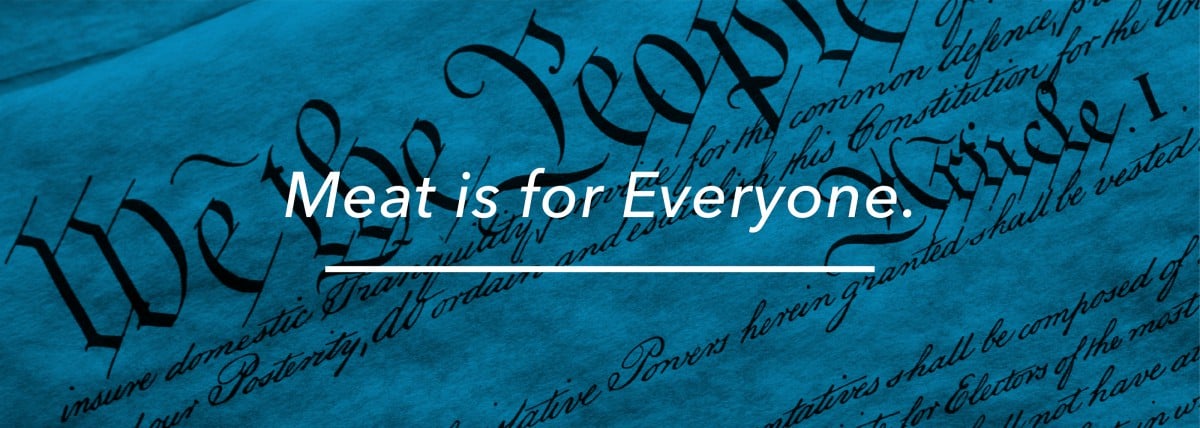States attempt to criminalize using “meat” on cell-based meat labels

Lawmakers in over a dozen states are pushing for laws that would criminalize labeling cell-based meat with the word “meat.”
Cell-based meat (also known as cultured meat) is meat grown directly from animal cells rather than harvested from an animal. It is meat down to the cellular and DNA level. Yet, in state after state, lawmakers are pushing bills that would throw people in jail for putting the word “meat” or similar terms on the label.
This will create consumer confusion
Although some legislators say they are trying to protect consumers from “confusion,” by banning the word “meat” on packaging, they will in fact create confusion. Cell-based beef, pork, and chicken are beef, pork, and chicken, right down to their cellular composition, which is determined by their DNA.
How meat is made—raising and slaughtering animals or growing the cells another way—doesn’t change this simple fact. The nutritional properties of beef, for example, are determined by the combination of bovine muscle and fat cells. The same is true for beef’s culinary properties and its taste. Ditto with pork, chicken, duck, etc.
Consumers who are allergic to meat will experience allergic reactions to cell-based meat just like animal-based meat. Criminalizing accurate labels means that consumers who do not or cannot consume meat will not have the information they need to understand what’s inside the package.
It’s a protectionist move
Further, it is clear that this legislative push isn’t actually about protecting consumers at all. It is about protecting incumbent companies from future competition. (Cell-based meat is not on the market yet.) As Missouri State Representative Greg Razer bluntly stated: “We have to protect our cattle industry, our hog farmers, our chicken industry.”
And in some of these states, that kind of protection means that food labels that don’t follow the new rules will receive criminal sanctions, including prison time.
These laws would hinder innovation
The U.S. economy is based on markets and innovation. This is why consumers have vastly more choices than they had 100 years ago. Innovators have the fundamental right to create and market better products without being censored, and consumers have the right to decide what they buy based on truthful information.
Ice didn’t stop being “ice” when we started making it with freezers rather than cutting it from frozen lakes. We didn’t stop calling cameras “cameras” when we moved from analog to digital. Cell phones are still “phones.”
Cell-based meat is still meat.
Nothing could be more un-American than throwing people in jail for making meat in a new way and then labeling it accurately. Even Tyson Foods—the largest meat producer in the United States—has recognized the value in this innovation. As their CEO said to Businessweek in 2018: “If we can grow meat without the animal, why wouldn’t we?”

